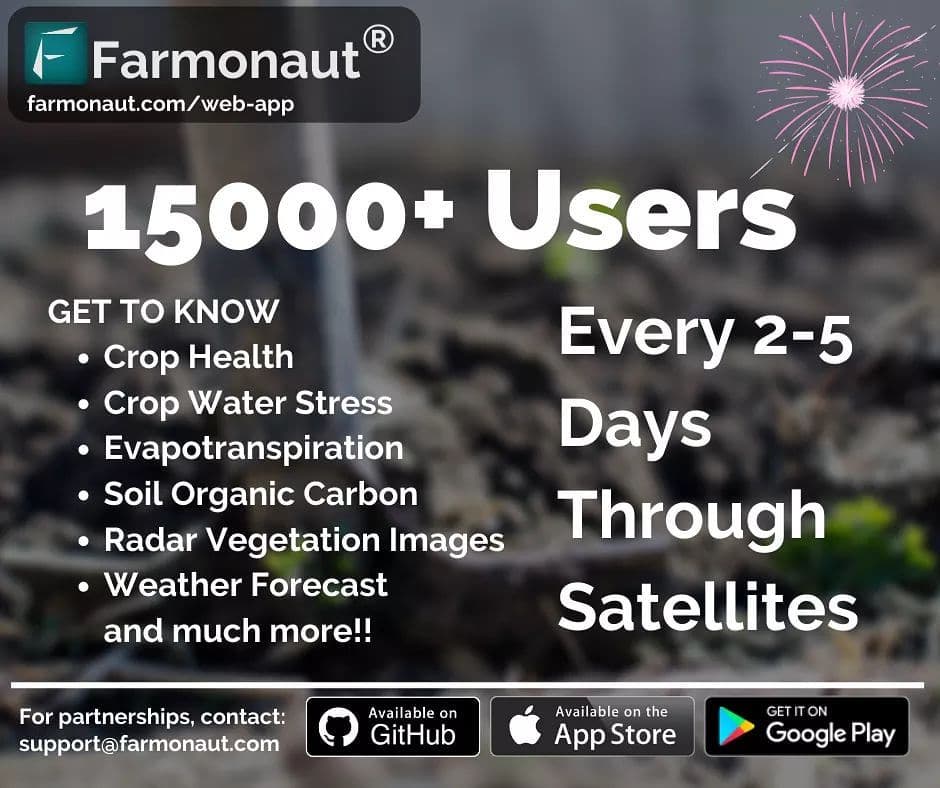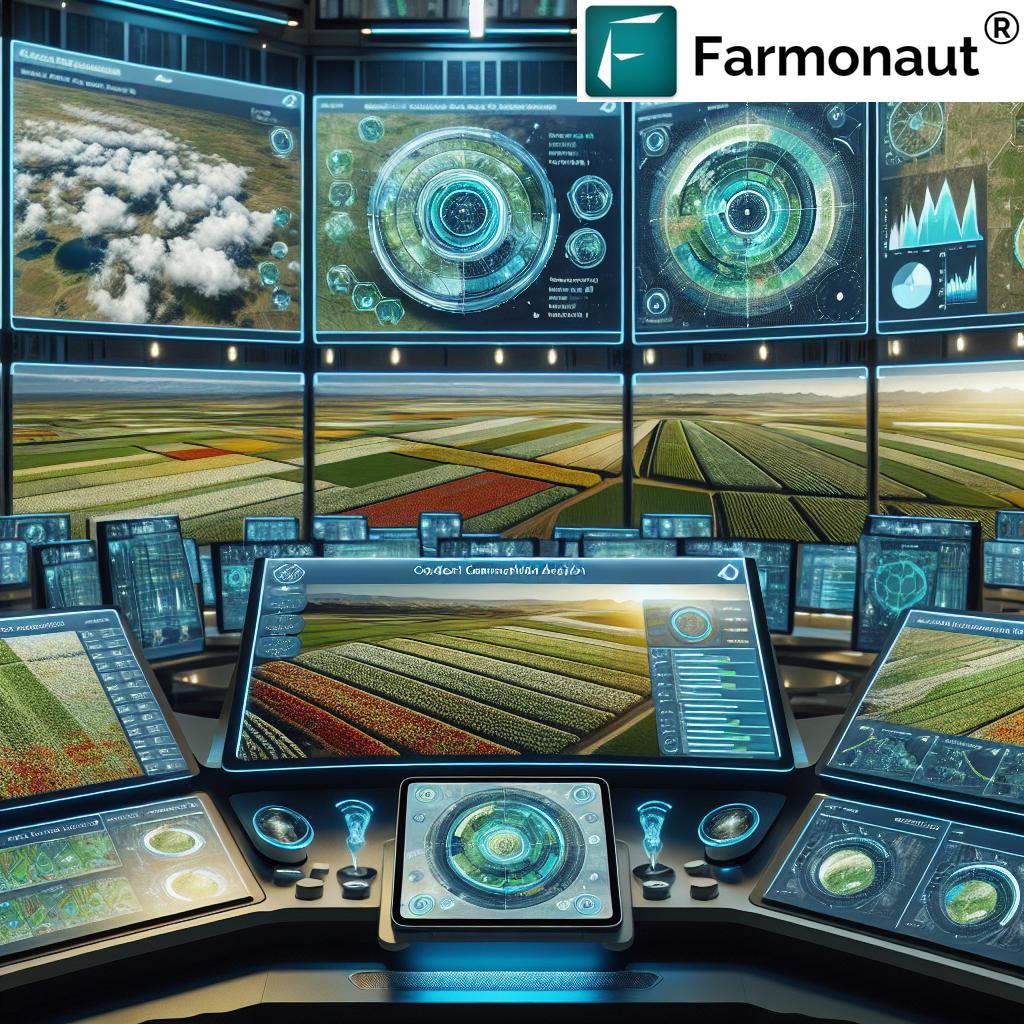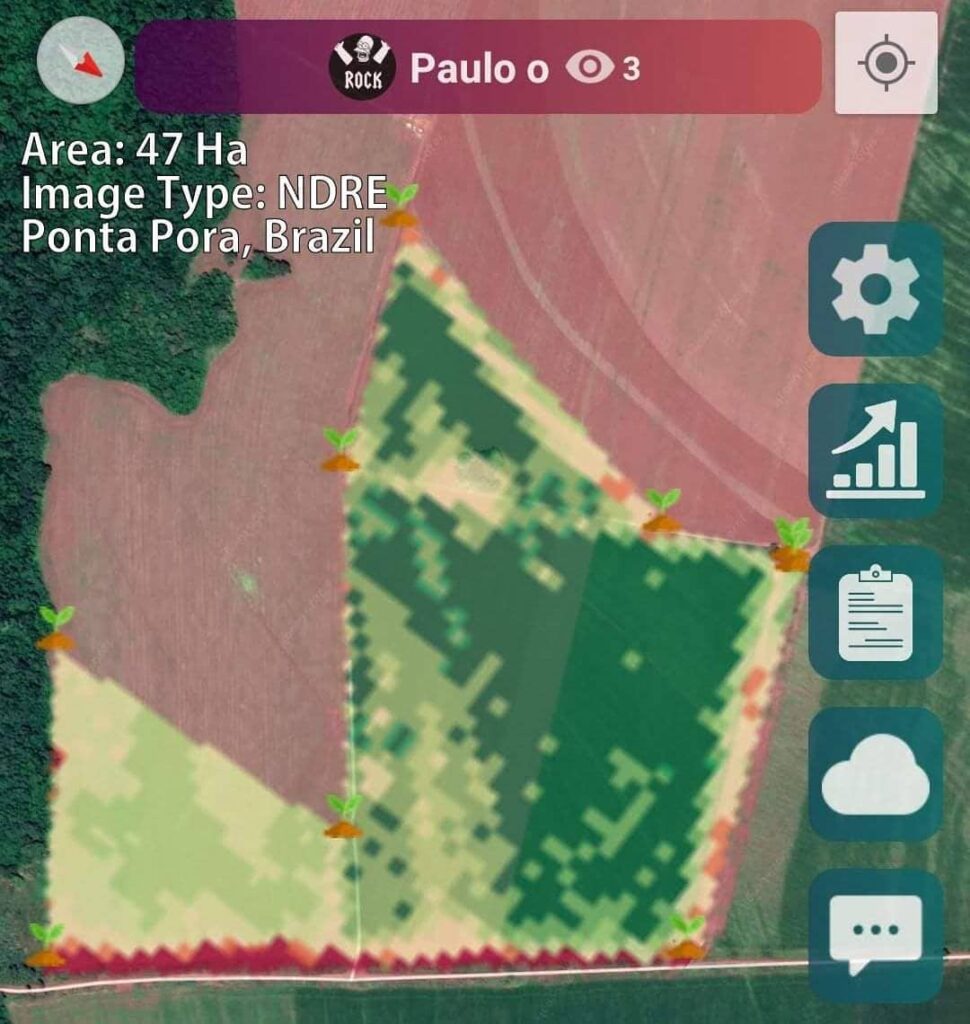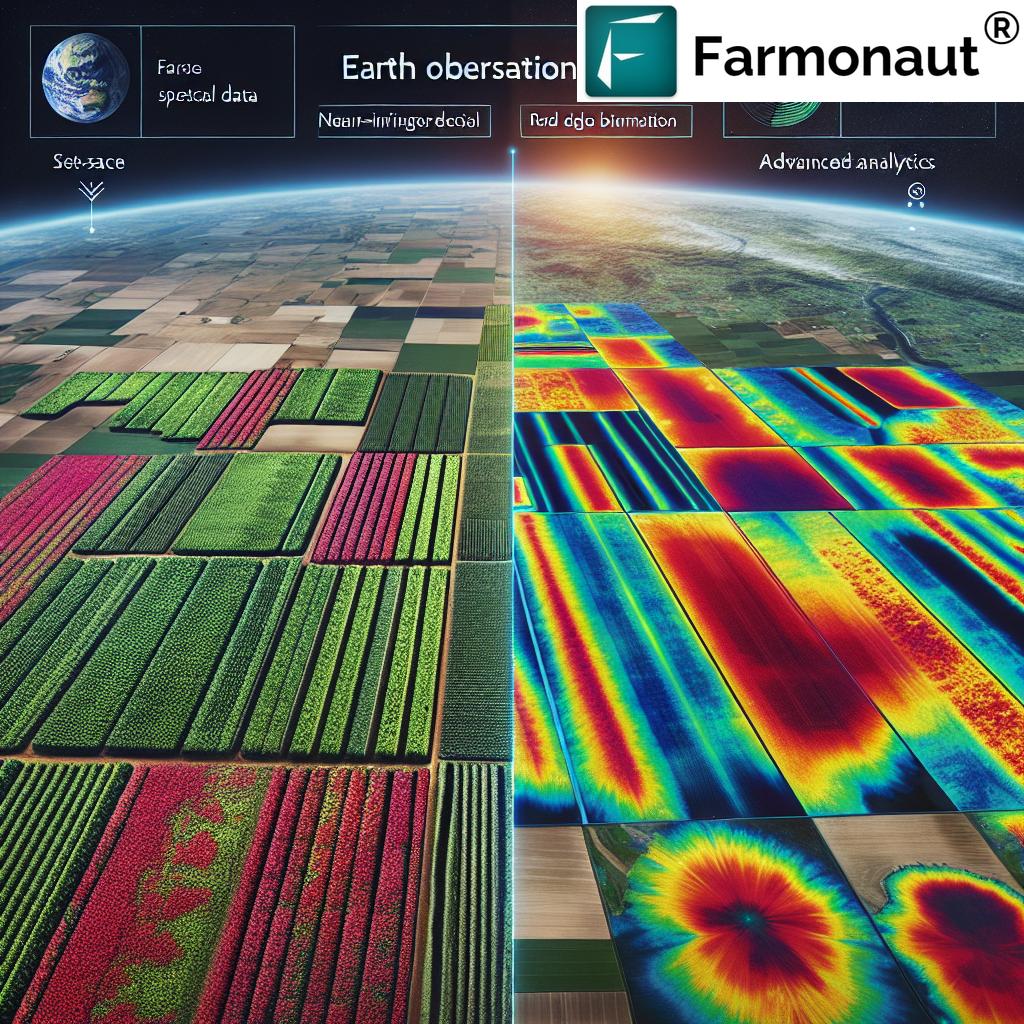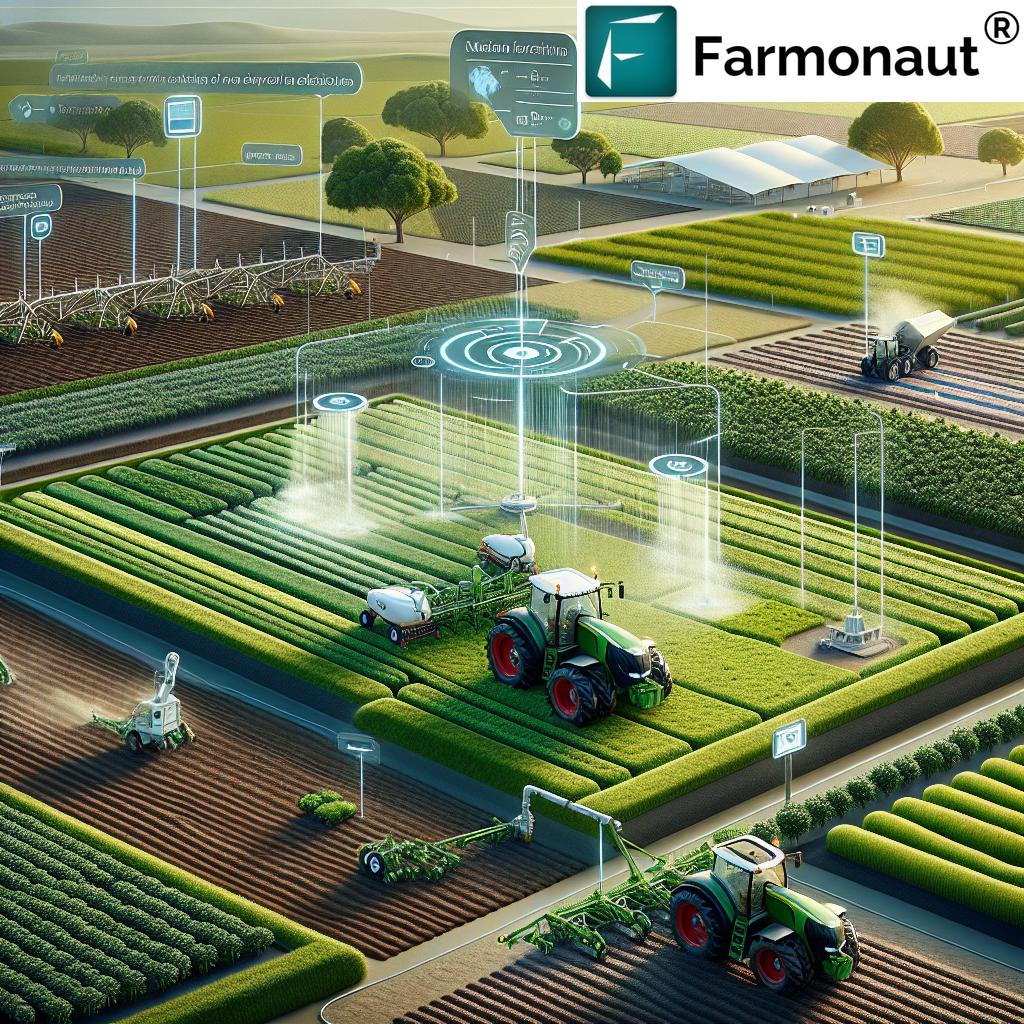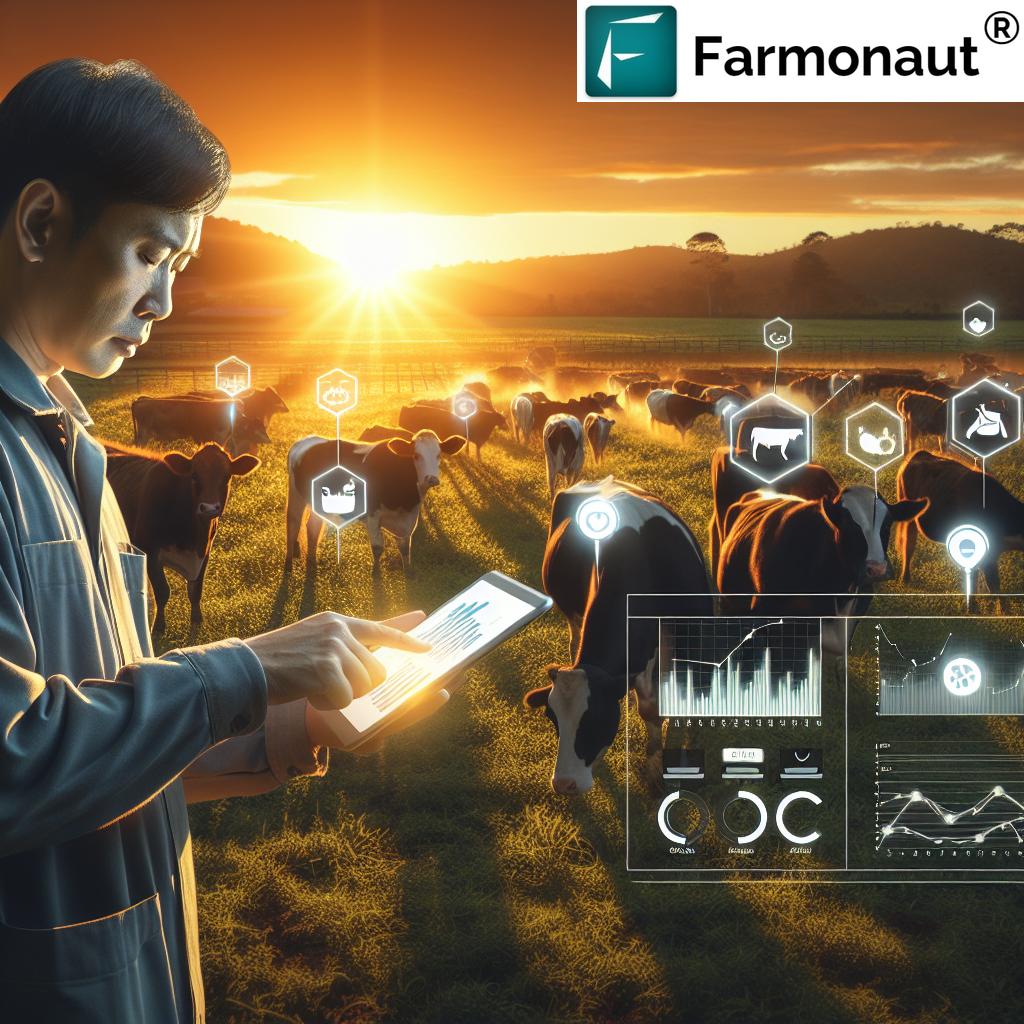Revolutionizing Agricultural Education: How Precision Ag Programs Are Adapting to Modern Farming Challenges
“Over 50% of modern agricultural programs now include precision agriculture technology in their core curriculum.”
In the ever-evolving landscape of agriculture, we are witnessing a remarkable transformation in agricultural education. As precision agriculture technology continues to revolutionize modern farming techniques, educational institutions are adapting their programs to meet the changing needs of the industry. In this comprehensive exploration, we will delve into how leading agriculture programs are restructuring their curricula to balance traditional agricultural science with cutting-edge precision ag certification, preparing students for diverse career opportunities in the dynamic agricultural sector.
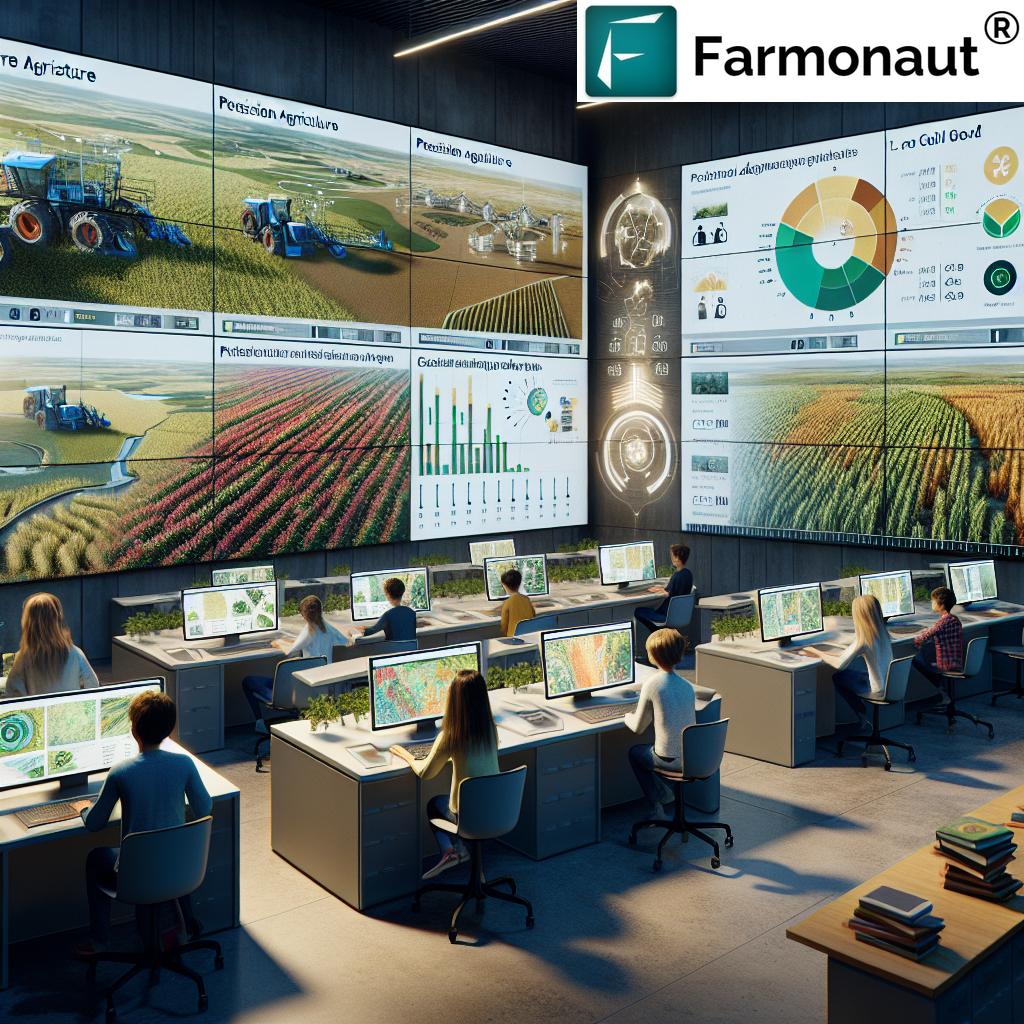
The Evolution of Agricultural Education
Agricultural education has come a long way from its roots in traditional farming practices. Today, it encompasses a wide range of disciplines, including agronomy, agricultural data analysis, and sustainable farming practices. The integration of precision agriculture technology into these programs marks a significant shift in how we approach farming education.
Lake Region State College (LRSC) serves as a prime example of this educational evolution. The institution has recently restructured its precision agriculture program, merging it into a broader agriculture program. This change reflects the industry’s move towards a more holistic approach to farming, where precision techniques are not seen as separate but as an integral part of modern agricultural practices.
Comprehensive Curriculum: Balancing Tradition and Innovation
The newly restructured program at LRSC offers a 60-credit Associate in Applied Science degree in agriculture, complemented by stackable certificates in precision agriculture or agriculture production management. This comprehensive approach ensures that students receive a well-rounded education that covers:
- Agronomy
- Machinery
- Animal science
- Agricultural finance
- Precision technology
- Essential skills (writing, public speaking)
By integrating these diverse subjects, the program prepares students for the multifaceted nature of modern farming. It’s not just about operating machinery or understanding crop cycles anymore; it’s about leveraging data, managing risks, and optimizing every aspect of farm production.
The Shift in Focus: From Cost Reduction to Risk Management
Tanner Nicholls, director of the LRSC Agriculture Program, highlights a crucial shift in the concept of precision agriculture. Initially focused primarily on cost reduction, precision ag has evolved to prioritize:
- Agricultural risk management
- Diversification of production
- Maximizing efficiencies in farming practices
This shift reflects the complex challenges faced by modern farmers, who must balance minimizing inputs while maximizing outputs in an increasingly unpredictable climate and market environment.
Integrating Practical Experience with Academic Rigor
A key strength of modern agricultural education programs is their emphasis on practical experience. At LRSC, all faculty members bring real-world agricultural sector experience into the classroom. This approach ensures that students receive not just theoretical knowledge but also practical insights that are directly applicable in the field.
The integration of practical experience is crucial in preparing students for the realities of modern farming. It allows them to:
- Gain hands-on experience with precision agriculture technology
- Understand the practical applications of agricultural data analysis
- Develop problem-solving skills for real-world farming challenges
For those interested in exploring precision agriculture technology firsthand, Farmonaut offers a comprehensive platform accessible through various channels:
Addressing Modern Farming Challenges Through Education
Modern farming faces numerous challenges, from climate change to market volatility. Agricultural education programs are adapting to address these challenges by focusing on:
- Sustainable farming practices
- Advanced agricultural risk management techniques
- Innovative approaches to farm production efficiency
By incorporating these elements into their curricula, programs like LRSC’s are equipping students with the tools and knowledge needed to navigate the complexities of modern agriculture.
“Agricultural data analysis skills can increase farm production efficiency by up to 20% in some cases.”
The Growing Demand for Skilled Agricultural Professionals
The agricultural sector is experiencing a significant increase in demand for skilled professionals. Companies are actively reaching out to programs like LRSC’s for potential recruits. This demand is driven by several factors:
- The need for expertise in precision agriculture technology
- The growing importance of data-driven decision-making in farming
- The increasing complexity of agricultural operations
Despite this growing demand, fewer students are entering the agriculture field. This creates a unique opportunity for those who do choose agricultural education, as almost all recent graduates from LRSC have had immediate employment opportunities or plans to continue their studies at four-year institutions.
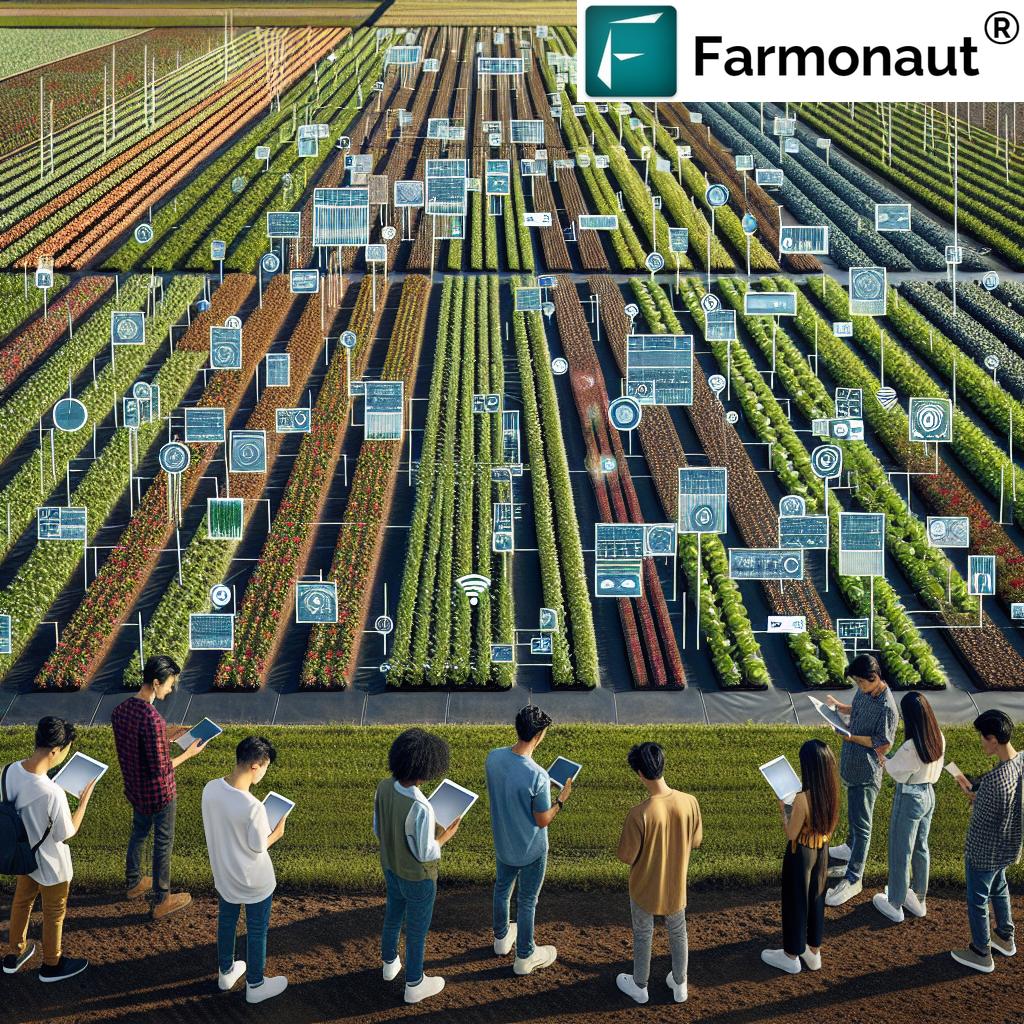
Bridging the Gap: High School to Higher Education
An exciting development in agricultural education is the collaboration between higher education institutions and high schools. LRSC’s partnership with Devils Lake High School is a prime example of this trend. By sharing facilities and resources, these institutions are creating a smoother pathway for students interested in pursuing agricultural careers.
The revival of the high school agriculture program, complete with newly developed courses and the establishment of an FFA chapter, demonstrates the growing recognition of agriculture’s importance at all educational levels. This collaboration:
- Introduces students to agricultural concepts earlier
- Provides a seamless transition to higher education
- Fosters a lifelong interest in agricultural sciences
The Multifaceted Nature of Modern Agricultural Education
Modern agricultural education goes far beyond traditional farming knowledge. It encompasses a wide range of disciplines and skills, including:
- Precision agriculture technology
- Livestock management
- Agricultural finance
- Data analysis and interpretation
- Sustainable farming practices
- Agricultural risk management
This diverse curriculum prepares students for a variety of career paths within the agricultural sector, from farm management to agribusiness and research roles.
The Role of Technology in Agricultural Education
Technology plays a pivotal role in modern agricultural education. Students are not only learning about traditional farming practices but also how to leverage cutting-edge tools and technologies to optimize farm operations. This includes:
- Satellite imagery for crop monitoring
- Drone technology for field mapping
- GPS-guided machinery for precision planting and harvesting
- Data analytics software for yield prediction and resource management
For those interested in exploring the latest in agricultural technology, Farmonaut offers comprehensive API solutions:
Sustainable Farming Practices in Education
Sustainability is a key focus in modern agricultural education. Programs are increasingly incorporating sustainable farming practices into their curricula, addressing critical issues such as:
- Soil conservation
- Water management
- Biodiversity preservation
- Carbon footprint reduction
By emphasizing these practices, educational programs are preparing students to become stewards of the land, capable of balancing productivity with environmental responsibility.
The Future of Agricultural Education
As we look to the future, agricultural education is poised for continued evolution. Some trends we can expect to see include:
- Increased integration of artificial intelligence and machine learning
- Greater focus on climate-resilient farming techniques
- Expansion of urban and vertical farming curricula
- Enhanced emphasis on global food security challenges
These advancements will ensure that agricultural education remains at the forefront of addressing global challenges related to food production, sustainability, and environmental stewardship.
Comparative Analysis: Traditional vs. Precision Agriculture Education
| Aspect | Traditional Agriculture Education | Precision Agriculture Education |
|---|---|---|
| Curriculum Focus | Basic agronomy, animal husbandry, farm management | Advanced agronomy, data analysis, technology integration |
| Technology Integration | Limited, mainly traditional farm equipment | Extensive use of GPS, drones, sensors, and data analytics tools |
| Skill Development | Manual skills, basic farm operations | Technical skills, data interpretation, software proficiency |
| Career Opportunities | Farm management, extension services | Precision ag specialist, data analyst, agtech consultant |
| Industry Relevance | Suited for traditional farming methods | Aligned with modern, technology-driven agriculture |
| Sustainable Practices | Basic conservation methods | Advanced resource optimization, precision application of inputs |
| Risk Management | Traditional crop insurance, diversification | Data-driven decision making, predictive modeling |
The Role of Industry Partnerships in Agricultural Education
Collaborations between educational institutions and industry players are becoming increasingly important in shaping agricultural education. These partnerships provide:
- Access to cutting-edge technology and equipment
- Real-world problem-solving opportunities for students
- Insights into current industry trends and needs
- Potential internship and employment opportunities
By fostering these relationships, agricultural programs ensure that their curricula remain relevant and aligned with industry demands.
Preparing for Diverse Agricultural Careers
Modern agricultural education programs are designed to prepare students for a wide array of career paths. Graduates can pursue opportunities in:
- Farm management and operations
- Agricultural technology and software development
- Agribusiness and marketing
- Agricultural research and development
- Sustainable agriculture consulting
- Agricultural policy and regulation
This diversity of career options reflects the expanding scope and importance of agriculture in our modern world.
The Global Perspective in Agricultural Education
As agriculture becomes increasingly globalized, educational programs are incorporating international perspectives into their curricula. This global outlook helps students understand:
- Global food security challenges
- International agricultural trade dynamics
- Cross-cultural farming practices and innovations
- The impact of climate change on global agriculture
By broadening their perspective, students are better prepared to tackle the complex, interconnected challenges facing modern agriculture on a global scale.
Continuing Education and Lifelong Learning in Agriculture
The rapid pace of technological advancement in agriculture necessitates a commitment to lifelong learning. Many agricultural education programs now offer:
- Continuing education courses for working professionals
- Online and distance learning options
- Specialized workshops and seminars on emerging technologies
- Certification programs in specific areas of agricultural expertise
These offerings ensure that agricultural professionals can stay updated with the latest developments in their field throughout their careers.
The Impact of Agricultural Education on Rural Communities
Agricultural education plays a vital role in sustaining and revitalizing rural communities. By providing local students with the skills and knowledge needed for modern farming, these programs:
- Help maintain the viability of family farms
- Attract young people to agricultural careers
- Foster innovation and economic growth in rural areas
- Preserve agricultural traditions while embracing new technologies
This impact extends beyond individual farms, contributing to the overall health and resilience of rural economies and communities.
Conclusion: Embracing the Future of Agricultural Education
As we’ve explored throughout this article, agricultural education is undergoing a remarkable transformation. By integrating precision agriculture technology, sustainable farming practices, and comprehensive risk management strategies, these programs are preparing the next generation of agricultural professionals to meet the challenges of modern farming.
The evolution of agricultural education reflects the changing landscape of agriculture itself. From the fields to the classroom, and from traditional practices to cutting-edge technologies, the sector is adapting to meet the needs of a growing global population while addressing critical environmental concerns.
As we look to the future, it’s clear that agricultural education will continue to play a pivotal role in shaping the future of farming. By equipping students with a blend of traditional knowledge and modern skills, these programs are not just educating farmers; they’re cultivating innovators, problem-solvers, and stewards of our global food system.
The journey of agricultural education is far from over. As technology advances and new challenges emerge, these programs will continue to evolve, ensuring that the next generation of agricultural professionals is always ready to meet the demands of an ever-changing world.
FAQ Section
Q: What is precision agriculture, and why is it important in modern farming education?
A: Precision agriculture is an approach that uses technology like GPS, sensors, and data analytics to optimize farming practices. It’s crucial in modern farming education because it teaches students how to maximize efficiency, reduce waste, and make data-driven decisions in agriculture.
Q: How are agricultural education programs adapting to incorporate new technologies?
A: Programs are integrating hands-on experience with technologies like drones, satellite imagery, and data analysis software. They’re also updating curricula to include courses on agricultural data analysis, precision farming techniques, and sustainable technology applications.
Q: What career opportunities are available for graduates of modern agricultural programs?
A: Graduates can pursue diverse careers including precision agriculture specialists, farm managers, agribusiness consultants, agricultural data analysts, sustainable farming advisors, and agricultural technology developers.
Q: How does agricultural education address sustainability and environmental concerns?
A: Modern programs incorporate sustainable farming practices, resource management, and environmental stewardship into their curricula. Students learn about soil conservation, water management, and techniques to reduce the environmental impact of farming.
Q: What role does data analysis play in modern agricultural education?
A: Data analysis is increasingly important in agriculture. Students learn to collect, interpret, and apply data for decision-making in areas like crop management, yield prediction, and resource allocation, enhancing overall farm efficiency and productivity.





